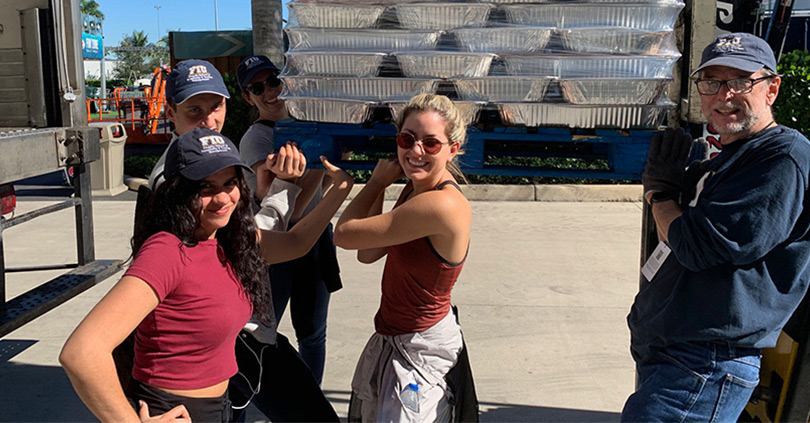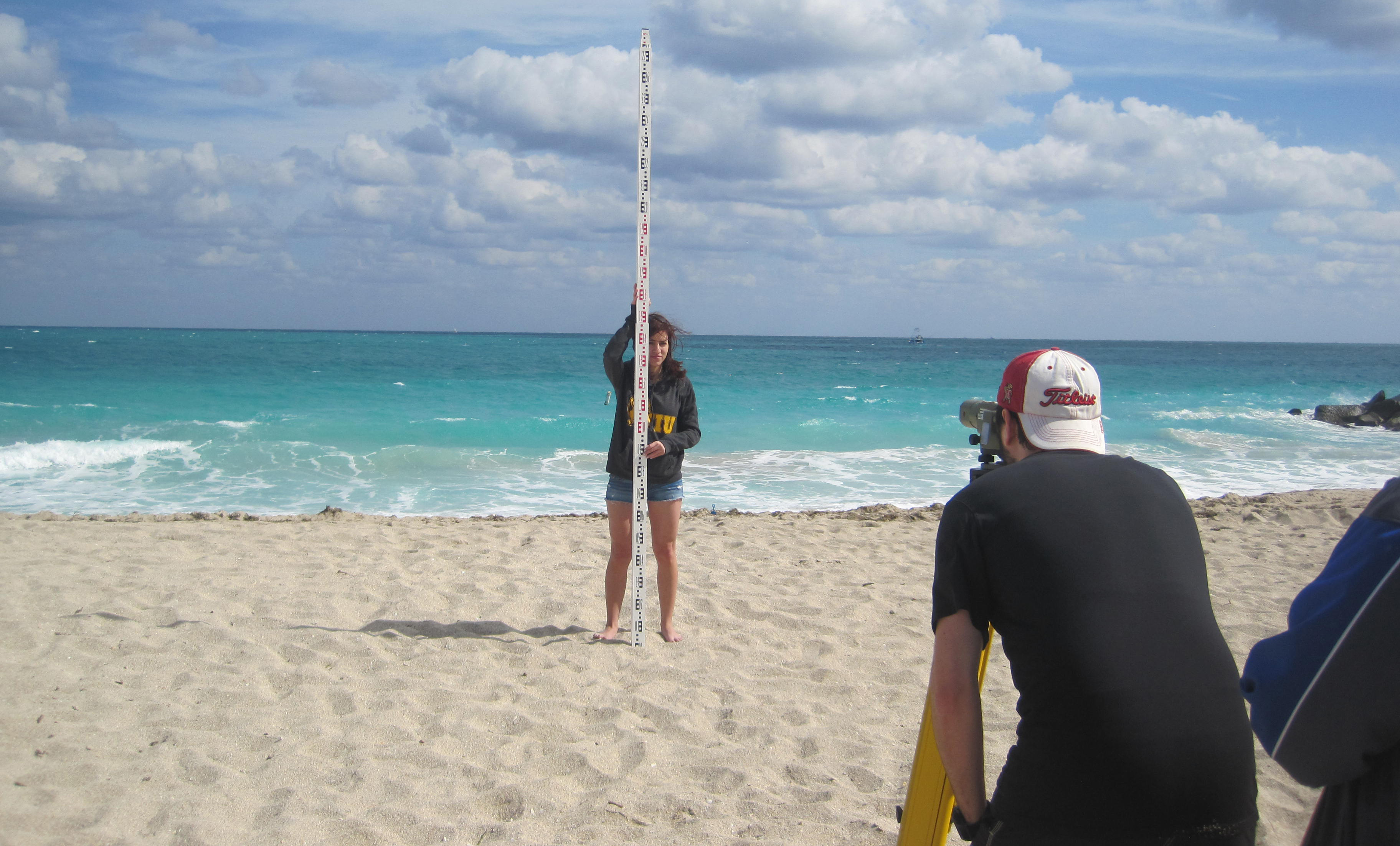Reimagining a comeback: How hospitality is forging a sustainable future

Jul 16, 2021, 12:00 PM.
article key points
FIU is developing graduates with a sustainability mindset, armed with the tools to help hospitality companies respond to growing consumer pressure for sustainable tourism.
There’s a certain clarity that comes with every crisis. As the world emerges from the dizzying changes and tests of leadership that came with COVID-19, it’s clear that organizations must remain agile in response to an ever-evolving world while at the same time minding their revenues. What’s also certain—while environmental impact from business-as-usual continues to dominate headlines, the consumer whisper for a more sustainable and equitable future has grown to a full yell.
In the wake of consumer demand, many companies have created structural changes to operate more transparently and responsibly. The shift has some of the world’s largest organizations rebuilding operations to address sustainability, and, in the bigger picture, climate change.
From cooking with a conscience, to reusing day-old towels at hotels (a practice that dates back 40 years), converting biomass waste into clean fuel, constructing LEED-certified buildings, use of electric, hybrid and alternative fuels for travel, and doing away with single-use straws and plastics—industries the world over are becoming greener, and this could not be truer within the hospitality and tourism industry.

Hospitality and tourism
“We need to take care of our resources,” emphasizes Carolin Lusby, associate professor at the Chaplin School of Hospitality and Tourism Management, and co-director of the new online B.A. in Global Sustainable Tourism. Lusby, a Top Scholar recipient for 2021 at FIU, is a certified Green Globe Auditor and is on the board of directors for Florida Society for Ethical Ecotourism, a non-profit organization dedicated to environmental awareness. She sees the need for more authentic experiences that give back, firsthand.
Well on its way toward sustainable practices, the pandemic provided the hospitality and tourism industry an opportunity to reassess operations, goals, energy use and resources, Lusby explains.
Path toward resilience
Consumers and organizations alike witnessed great environmental differences during COVID-19 lockdowns—images of crystal-clear Venetian canals and cleaner ocean waters teeming with new life. In Florida, air quality became measurably cleaner as transportation patterns eased. Florida’s vulnerable loggerhead and leatherback sea turtles are also making a comeback. These events offered pause. It became even more obvious that stewardship of the environment in Florida is paramount.
Joseph Cilli, department chair and director of distance learning for the Chaplin School notes that with year-round outdoor activities in the Sunshine State, hospitality and tourism as a major industry, 825 miles of beaches, and a melting pot of cultures, FIU is poised to help create the transformation needed to fortify the state’s economy.
Companies are now seeking professionals for high-paying roles to oversee and ensure corporate social responsibility (CSR) with respect to environmental sustainability. That’s not all. The growing push for CSR initiatives is geared toward meaningful and tangible impacts, as experts agree, CSR positively affects the bottom line.
Pre-pandemic, one-off campaigns are now serious overhauls embedded within operations. Externally, this means resource protection and conservation initiatives; internally, this translates to energy reduction and cost savings, long-term. However, holistically, the end result is environmental and economic resilience, states Lusby.

Protect revenues
Cilli sees a direct correlation between sustainability and hospitality and tourism revenues—especially in Florida. If waters and beaches are polluted, tourists won’t come and spend money in hotels and restaurants, he illustrates.
In South Florida’s restaurants and hotels alone, from March 2020 to August 2020, a snapshot of the losses due to COVID-19 totaled more than $3 billion. Being mindful of potential vulnerabilities that could affect revenues is vital, so there is a business aspect to sustainability—one that involves multiple channels and coordination. Along those lines, Cilli sees the great need for managers steeped in knowledge on how to create partnerships and collaborations.
“Our B.A. in Global Sustainable Tourism program educates students and creates the managers needed at this frontier, trained in the sustainability principles required to deal with these new business issues,” describes Cilli who elaborates on how multifaceted a sustainability path must be with conservation activities, consumer demand, the operations of an organization and industry governance.
Value to students, future
There’s an inherent value to students’ marketability in a post-pandemic world as the global focus shifts to climate change, summarizes John Buschman, who is a lecturer at the Chaplin School and co-director of the new B.A. in Global Sustainable Tourism. Buschman also leads the Chaplin School’s Food Rescue initiatives that save high-quality foods from the landfill and instead feed thousands with meals at area homeless shelters. He stresses that sustainability isn’t just about the environment, it’s about people and Lusby agrees.
“The B.A. in Global Sustainable Tourism offers students more of a connection to self, nature and others,” adds Lusby.
Now enrolling students, the degree launches in January 2022, and will provide a stream of professionals to an industry that includes more than 700,000 hotels and resorts around the world, according to Condor Ferries’ statistics for 2020-2021. This stream will also feed the worldwide cruise ship industry, transportation, food-related businesses, meetings and sports-related events, shopping, and on and on.
Recognition and applicability
“How are we, as a university, responding to the changes in the industry and adding value?” asks Cilli who rationalizes that a layered response is what is needed to make a lasting change—this is where the real work is necessary to ensure the future of hospitality and tourism dollars.
FIU is well part of the sustainability and social responsibility conversation. The Times Higher Education Impact report currently ranks the university No. 6 among U.S. public universities and No. 74 in the world for its Overall Impact. These rankings are earned according to global performance tables used to assess universities against the United Nations’ Sustainable Development Goals (SDGs). The report also places FIU in the top 10 in nine categories based on the U.N. criteria for impact on communities. These categories include the areas of research, outreach and stewardship.
While FIU’s sustainability story is multifaceted and involves industries, local businesses, the U.N., rankings and education, there is always room to innovate to be responsive to needs.
The fact that the new B.A. in Global Sustainable Tourism is available in an online format offers its own sustainability and resilience advantages, concludes Cilli, who highlights the university’s commitment to becoming synonymous with sustainability and serving its community, anytime, anywhere.
